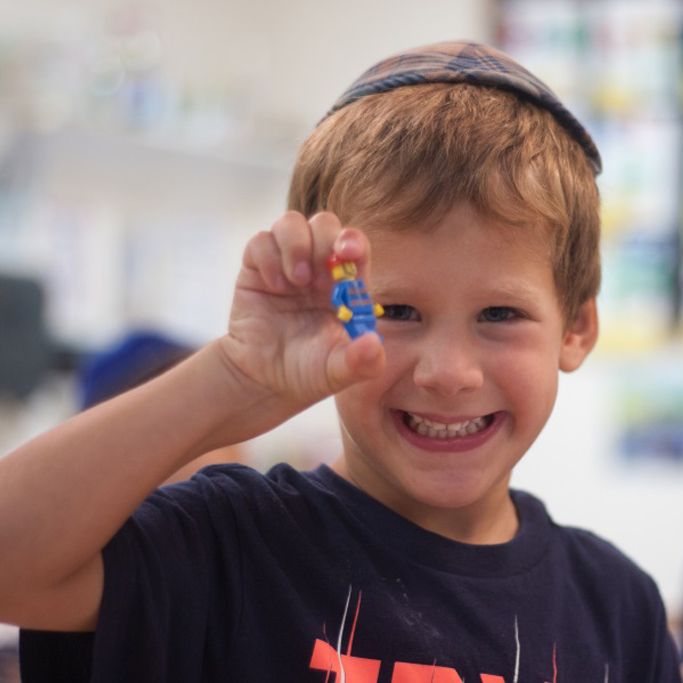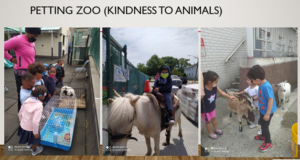
Character Building and Values at All My Children
As caretakers of precious children, we often consider how we can prepare them for their future in learning. We concentrate on preparing them with the necessary skills that they’ll need when they start school.
We want them to know their ABC’s and 123’s. While these skills are of course important and form a smooth transition into kindergarten learning, it’s their values that will actually lay the foundation of who they are, both during their school years and in their life ahead.
It is rare that adults consider the social-emotional skills that children may need or how to prepare for societal expectations. At All My Children, we have brought personal and societal values to the forefront of learning to foster positive relationships and lay a foundation for a strong moral compass.
Our Character Building and Values activity guide has been in the making for quite some time. We have recently made a few changes to the activity guide and rolled out the improved guide to the directors of each AMC site to turn-key to their teachers.
The AMC site directors participated in a Zoom training that indicated how to facilitate and foster values in an early childhood classroom.
The values that All My Children has chosen to foster include:
Responsibility
From infant through preschool age, children begin to develop an awareness that we are responsible for our own actions/words/play/space. This is encouraged through clean up, responsibility for materials and learning environments, and responsibility to friends when interacting with other children and adults.
Gratitude
As a child grows, they are moving from an ego-centric view of the world to a more outward looking one. Hand in hand with this they need to develop the value of gratitude. It will enable them to have a more positive outlook on life.
The preschool years are the perfect time for teaching children how to show appreciation by encouraging them to help with thank you notes or encouraging them to reflect on the benefits of friends and family. As their awareness grows, children will learn to recognize and show appreciation for the wonderful people and things in our lives.
Positive Mindset
Sometimes when things don’t go our way, we need to take a moment to calm down and reframe the situation. This helps us react positively. In this value, children explore calm down choices, reframing (when a crayon breaks, instead of reacting negatively, we can look at the situation in a positive way and say “Hey, now we have 2 crayons!”).
Respecting Others/ Life
Every living being has the right to life. In addition to the obvious of not killing, respecting life is about not harming someone else’s life in any way. This includes being kind and developing empathy. Alongside moving away from the ego-centric view and to one where the child is a valued member of a family and wider community, is being able to consider others. This value encourages children to stop and consider the impact of their actions on themselves and others.
Within this value, we encourage talking about why someone may feel sad, hurt, angry, or confused. What was it that would have caused these feelings in the other person? How would the child feel in the same situation? This can be extended by problem-solving – what can be done to make someone else feel better and allowing your child input regarding such decision-making. (This will be presented in 2 segments, one as respecting others, and the second as respecting all living beings such as plants, bugs, animals, etc.).
As children grow, they become more aware of others and their feelings. This is a perfect opportunity to teach empathy and respect.
Sharing/Giving
As infants grow into young children, they become highly aware of territory and property. However, life is always going to be easier for them if they have developed the ability to share comfortably. Some children find this easier than others. With this value, we can recognize what belongs to us, what belongs to others and how we can give from what we have.
Family Relationships
All children’s values should be grounded in one overriding one of love. Loving attitudes in children are developed when they are shown love. By demonstrating love and an affectionate spirit, they learn to love others and themselves. Let them learn that expressing love is valued in and of itself.
Additionally, children begin to recognize that family is important, and we learn to love and respect within our familial relationships. This is also an important time to establish the roles of each family member and how it creates a nurturing and safe circle of family within each child’s life.
Kindness to Animals and Our Environment
Children are encouraged to consider caring for animals and our environment. This includes refraining from cruelty and learning how to properly care for the animals around us as well as our environment.
Understanding Boundaries and Rules
Children are encouraged to recognize what our rules and boundaries are and why we have them. This includes preschool rules as well as societal rules, such as pedestrian safety, littering, speed limits, etc.
For the duration of the school year, each classroom will be implementing each of these values to foster positive relationships and develop a strong moral compass.
Stay tuned for more updates on our Character Building and Values activities!

